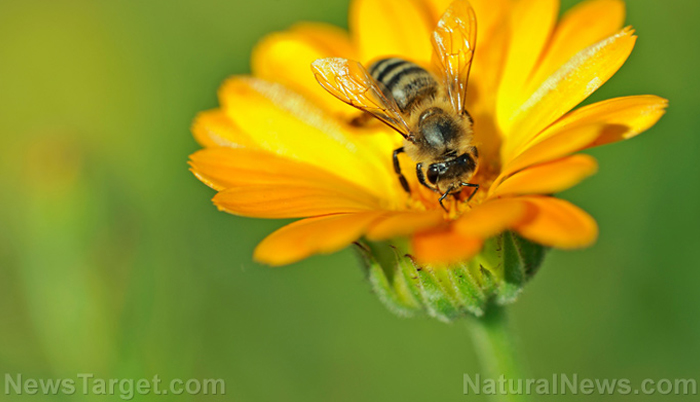![]() Home > Health
Home > Health
Bee-Killing Pesticides Threaten The Global Food Supply

News Target | Natural News
![]() January 25th, 2021 | 11:37 AM |
January 25th, 2021 | 11:37 AM | ![]() 347 views
347 views
NATURALNEWS
Neonicotinoids, better known as neonics, are a class of insecticides with a chemical structure that resembles nicotine – a nitrogen-containing compound present in tobacco plants.
Farmers across the United States use pesticides with neonics to protect their crops from pests. But experts find that the use of neonics has disastrous consequences for food production for humans. Daniel Raichel of the environmental group Natural Resources Defense Council (NRDC) said as much in his recent article.
Raichel pointed out that neonics are pervasive contaminants that harm insects, wild animals and even humans. Although research on neonics’ harmful effects is not lacking, farmers often have no choice but to purchase neonics-treated seeds because the companies that own conventional seeds also make neonics.
This has led to millions of acres of food crops being sown each season with neonics-treated seeds, which can be detrimental to the environment. For one, neonics can leach out into the soil. When it rains, these chemicals are likely to be washed away into new soil and water supplies.
As plants grow, neonics coating the seeds are absorbed up their roots and into their nectar, pollen and fruits. If insects, birds and wild animals interact with those plants – distributing pollen or eating fruits – they could end up with serious health issues or, worse, dead.
Neonics also persist in the environment for years after application, building up in the soil over time and posing a threat to future generations of insects and wildlife.
Neonics kill bees, affect food production
The U.S. agricultural system is now 48 times more harmful to insects, birds and wild animals than it was about two decades ago. Neonics alone accounted for more than 90 percent of that increase.
These figures have led experts to examine the effects of neonics on the health and survival of honey bees due to the declining trends in honey bee colonies in the U.S. Bees are incredibly important for agriculture because they pollinate crops and help boost yield. In fact, over a third of the food humans eat rely on pollination.
In 2017, an international team of researchers conducted the biggest field study on bees and neonics. The group monitored honey bees and two kinds of wild bees in 33 sites across Europe. Each site had large fields of oilseed rape or canola. Some of the fields were sown with seeds treated with neonics and a fungicide. Other fields were treated with the fungicide alone.
The researchers found that bees feeding on neonics-treated canola fared worse than bees that didn’t. When wild bees and honey bees were exposed to neonics, they had difficulty reproducing. Only a few colonies of bees exposed to neonics survived the winter as well. The team said the results were a “cause for concern.”
Meanwhile, a study published on Thursday, Jan. 21, showed that when bees and flies were exposed to a similar amount of neonics as they might experience on an actual farm that used the pesticides, the insects slept less. Their daily behavioral rhythms were also “knocked out of sync” with the 24-hour cycle of day and night.
Another study showed that neonics affected bees’ ability to groom themselves, which they need to protect their bodies from disease-causing parasites like mites.
Overall, existing studies on bees and neonics indicate that neonics are detrimental to bees’ health and survival. And with neonics driving dwindling populations of these pollinators, humans may find themselves facing food insecurity in the near future.
Still, it isn’t too late for bees and humans. The solution is simple, said Raichel. Humans just need to stop using neonics.
Source:
courtesy of NATURALNEWS
by Divina Ramirez
If you have any stories or news that you would like to share with the global online community, please feel free to share it with us by contacting us directly at [email protected]